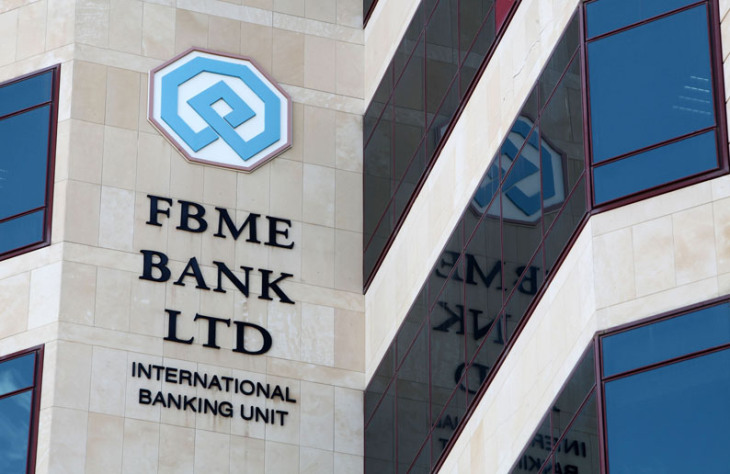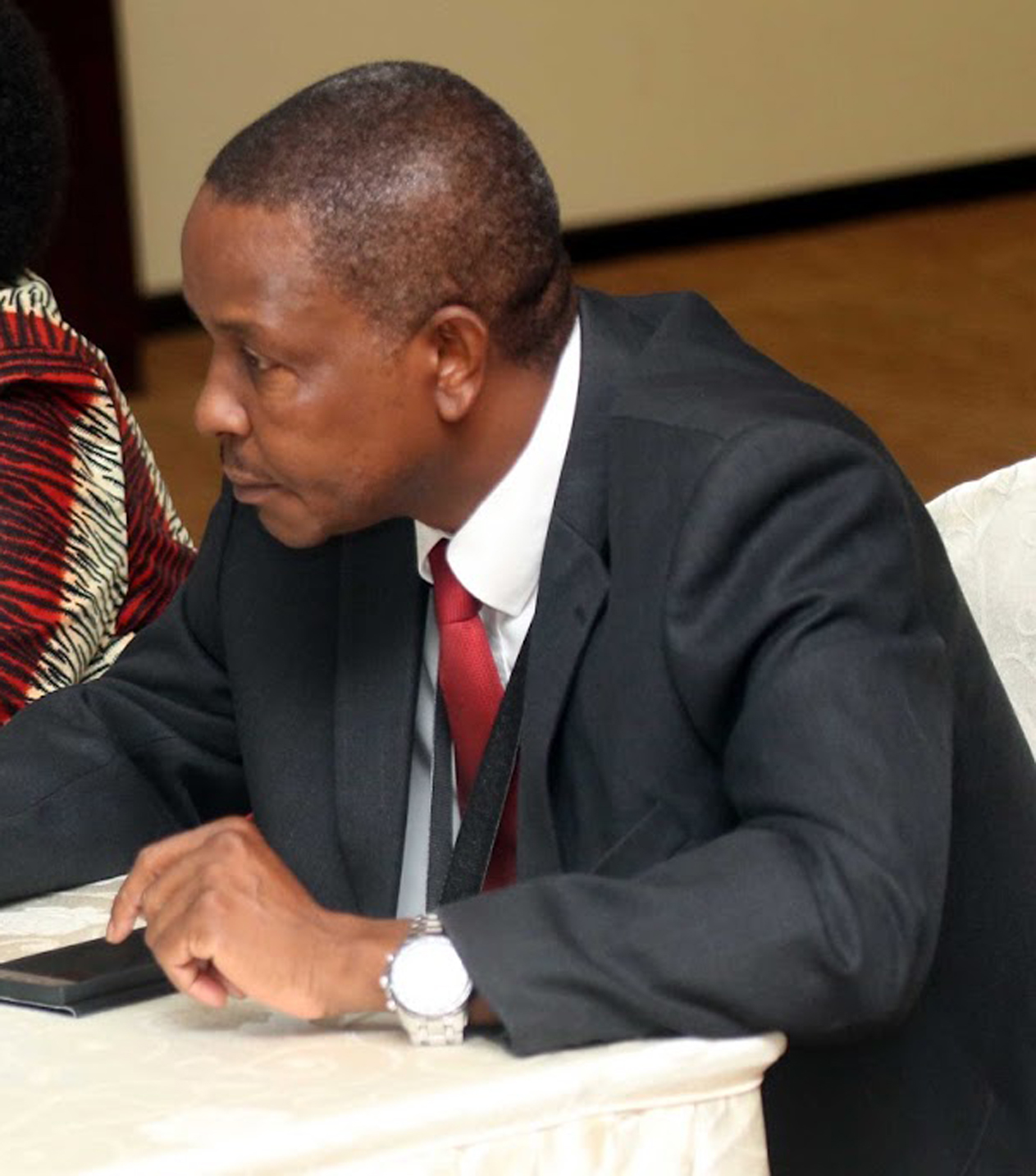By Jaston Binala.
Some 8,800 bank accounts at the Tanzanian FBME Bank Limited were rendered useless on May 8, 2017, when the Bank of Tanzania (BoT) revoked the bank’s operating license and placed it under liquidation. No transactions will now be conducted from the accounts, pending a liquidator’s audit and limited compensation.
The Bank of Tanzania on May 8, 2017 discontinued all banking operations of FBME Bank Ltd which is declared a money laundering institution and appointed its largely independent affiliate, the Deposit Insurance Board (DIB) as FBME liquidator.
The Director of Banking Supervision at the Bank of Tanzania, Kennedy Nyoni told this Website he did not immediately have access to figures expressing the value in the doomed 8,800 bank accounts at FBME but would be willing to share that information at a later time.
FBME was in 2014 widely regarded as the largest bank in Tanzania on account of its $2 billion asset portfolio, although it had only four branches. The Bank of Tanzania Governor Prof. Benno Ndulu declined to comment on the FBME current financial status during a press conference in 2016.
The DIB Finance and Administration Manager Richard Malisa told this Website by phone the liquidator needed some time to sort out and audit the figures in the rogue bank to know the amounts involved in preparation for some reimbursements to customers.
The Tanzania Deposit Insurance Board was formed in 1994 to protect small-scale users of banking services from losses that may come when a bank they are using fails. The board has legal mandate to reimburse one individual depositor only up to TSh1,500,000 ($682) from salvaged deposits in a failed bank, even where an account holder has more money in one or more deposit accounts in the failed bank, according to Malisa.
The DIB will now conduct an audit in FBME to determine financial positions of all customers in the bank before claims can be paid, Malisa said.
The Bank of Tanzania placed FBME Bank Limited (FBME) under statutory management on July 24, 2014. The step was taken following a notice issued by the U.S. Treasury’s Financial Crimes Enforcement Network (FinCEN) which accused FBME to be a money laundering institution, and also following the step taken by the Central Bank of Cyprus to put the bank branch in that country under special administration. FinCEN announced in its July 24 notice, intention to bar FBME from using the US financial system.
On July 29, 2015, FinCEN decided to block FBME from using the US financial system. FBME opened a court case in the US District Court of the District of Columbia asking the court to undo the FinCEN decision, but a decision was reached by the court on April 14, 2017 allowing FinCEN to proceed with its final decision (rule) to bar FBME from using the US financial system.
The April 14, 2017 court decision has led to serious difficulties for FBME which claimed to specialize in cross-border transactions, commercial trading and foreign exchange services since it can no longer conduct cross-border transactions. FBME can no longer be able to serve its customers as mandated by its operating license in Tanzania since it can no longer receive international banking services.
“In consideration of consequences resulting from FinCEN’s final decision, and the powers given by Section 58(2)a, 11(3)(i), 61(1) and 41(a) in the Banking and Financial Institutions Act, 2006, the Bank of Tanzania has stopped all operations of FBME bank; it has cancelled the FBME banking license and has placed the bank under liquidation,” a Bank of Tanzania statement reads in part. The central bank has also appointed DIB as liquidator.
A statement issued by the Central Bank’s Directorate of Communications said depositors, creditors and debtors of FBME Bank are advised to be patient as the Liquidator puts in place arrangements to handle their affairs.
The DIB Finance and Administration Manager recently told reporters bank users should place their money only in credible banks to avoid the risk of losing savings. The re-imbursement was set at Tsh. 1,500,000 because it was assumed customers affected by a failing bank would be those of low income and low financial literacy since smart bank users will usually keep their money in reliable, reputable banks. It is advisable that bank users deposit money only in banks with a good reputations, Malisa emphasised, adding: “You must study a bank before you put your money there.”
Two Tanzanian banks collapsed in the past; these include the Tanzania Housing Bank (THB) and Greenland Bank Limited. DIB is little known to the Tanzanian general public and because of this lack of awareness among members of the population about existence of this ‘micro’ finance protection agency, the board currently holds Sh78,000,000 ($35,455) belonging to small depositors in the failed Greenland Bank Limited. The amount belongs to a long list of individual small depositors who have not claimed their money.
DIB was eestablished in 1994 under the Banking and Financial Institutions Act of 1991 which was repealed but it has continued to exist under provisions of Sections 36 through 42 of the Banking and Financial Institutions Act, 2006. The board is an independent entity operating under the auspicious of Bank of Tanzania to provide insurance against loss of all or part of the deposits in case of a bank failure.
BoT took over FBME management in what was described as effort to maintain integrity of a sound and stable banking sector. The Central Bank took over management of the Tanzania headquartered Federal Bank of Middle East (FBME Bank) following US allegations the bank was linked to money laundering and the financing of terrorism.
Earlier in July 2014, the Financial Crimes Enforcement Network (FinCEN) of the US Treasury said FBME had facilitated a “substantial volume” of money laundering through the bank for many years and had systemic failures in its controls. Following the allegations, the Cental Bank of Cyprus took over control of the FBME Bank branches in Cyprus and the Bank of Tanzania followed suit.
Although the bank had set Tanzania as its headquarters, most of its activities were carried out through its Cypriot branches, FinCEN said. The bank is reportedly co-owned by one Ayoub Farid Saab (50 per cent) and F M Saab (50 per cent) and has branches in Cyprus, Tanzania and an office in Moscow.
BoT took over management of four FBME branches in Tanzania and appointed its Manager to run operations in the suspicious bank, although the takeover was under a different set of circumstances.
The Central Bank issued a statement at the time saying “the Bank of Tanzania, in compliance with the provisions of Section 56(1)(g)(iii) of the Banking and Financial Institutions Act, 2006 has taken over the management of FBME Bank Tanzania… The objective underlying this decision of the Bank of Tanzania is to ensure safety of customers’ deposits and to safeguard the stability of the entire banking system.”
Responding to a question at a press conference in 2016, the BoT Governor said when the Central bank takes over management of a bank, it ceases to belong to the original owners.
Although FBME had set Tanzania as its headquarters, most of its activities were carried out through its Cypriot branches, FinCEN said. The bank is reportedly co-owned by one Ayoub Farid Saab (50 per cent) and F M Saab (50 per cent) and has branches in Cyprus, Tanzania and an office in Moscow.
Wne BoT took over management of four FBME branches in Tanzania it appointed its own Manager to run operations in the dubious bank. The Tanzania Central Bank issued a statement at the time saying “the Bank of Tanzania, in compliance with the provisions of Section 56(1)(g)(iii) of the Banking and Financial Institutions Act, 2006 has taken over the management of FBME Bank Tanzania… The objective underlying this decision of the Bank of Tanzania is to ensure safety of customers’ deposits and to safeguard the stability of the entire banking system.”
While FBME was in 2014 widely regarded as the largest bank in Tanzania on account of its $2 billion asset portfolio, although it had only four branches, the Bank of Tanzania Governor declined to comment on the FBME financial status.
Prof. Ndulu described the Tanzania banking sector as doing very well with ratios of total capital to total risk weighted assets and off balance sheet exposures being above requirements by nearly 38% as an average of the industry.






